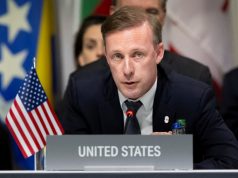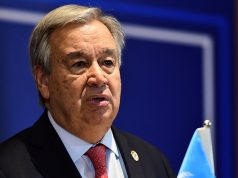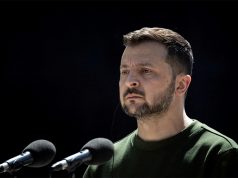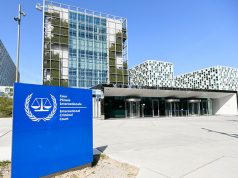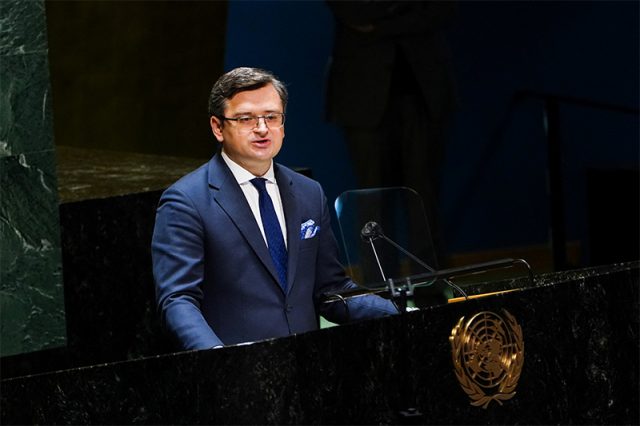
UNITED NATIONS, — Ukraine appealed to the U.N. General Assembly on Wednesday to stop Russia’s “aggressive plans,” while Russia said it could not ignore “the blatant genocide” of Russian speakers in eastern Ukraine and disparaged U.N. Secretary-General Antonio Guterres.
Guterres and the United States have dismissed Moscow’s claims of genocide.
The General Assembly held its annual meeting on Ukraine, which coincided with increasing tensions over U.S. accusations that Russia has deployed more than 150,000 troops near Ukraine‘s borders and is ready to invade. Russia has denied it wants to invade Ukraine and accuses Washington and allies of hysteria.
Russian President Vladimir Putin recognized the independence of two Moscow-backed separatist regions of eastern Ukraine this week and has ordered the deployment of Russian troops there to “keep the peace.”Read full story Washington and its allies responded with a series of sanctions.
Guterres told the 193-member General Assembly that an expanded conflict in Ukraine “could see a scale and severity of need unseen for many years.” He called for a ceasefire and return to dialogue.
While the General Assembly will not take any action on Wednesday, the meeting offers dozens of countries a chance to air their views, a move the United States and others hope will show that Russia is internationally isolated over its moves on Ukraine.
“Now is the time to get off the sidelines. Let us together, show Russia that it is isolated and alone in its aggressive actions,” U.S. Ambassador to the United Nations, Linda Thomas-Greenfield, told the General Assembly.
Ukrainian Foreign Minister Dmytro Kuleba said “no one will be able to sit out this crisis” if Putin makes the situation worse.
“Active diplomacy, strong political messages, tough economic sanctions and strengthening Ukraine can still force Moscow to abandon aggressive plans,” he said.
‘War of choice’
Washington has dismissed Russia’s justification for deploying troops to the separatist regions as “nonsense,” and Guterres said they would not be “peacekeepers.”
“Given the blatant genocide and the trampling on the most important human rights of all – the right to life – our country could not remain indifferent to the fate of the 4 million people of Donbass,” Russian U.N. Ambassador Vassily Nebenzia told the General Assembly, referring to eastern Ukraine.
He also criticized Guterres for his remarks on eastern Ukraine as “not in line with his status and his mandate under the U.N. Charter,” the founding document of the world body.
China’s U.N. Ambassador Zhang Jun said Beijing’s position “on safeguarding the sovereignty and territorial integrity of all states has been consistent and the purposes and principles of the U.N. Charter should be jointly upheld.”
He called for continued dialogue and for all parties to exercise restraint and avoid aggravating tensions.
Britain’s minister of state for South Asia and the Commonwealth, Tariq Ahmad, urged other countries to also impose sanctions on Russia: “The Kremlin must understand the strength of the world’s condemnation of President Putin’s war of choice.”
Germany’s Minister of State Tobias Lindner called on U.N. states to reject Russia’s action, warning: “If not, then what has hit Ukraine today could happen to other U.N. member states tomorrow.”
—Reporting by Michelle Nichols; editing by Jonathan Oatis and Grant McCool






